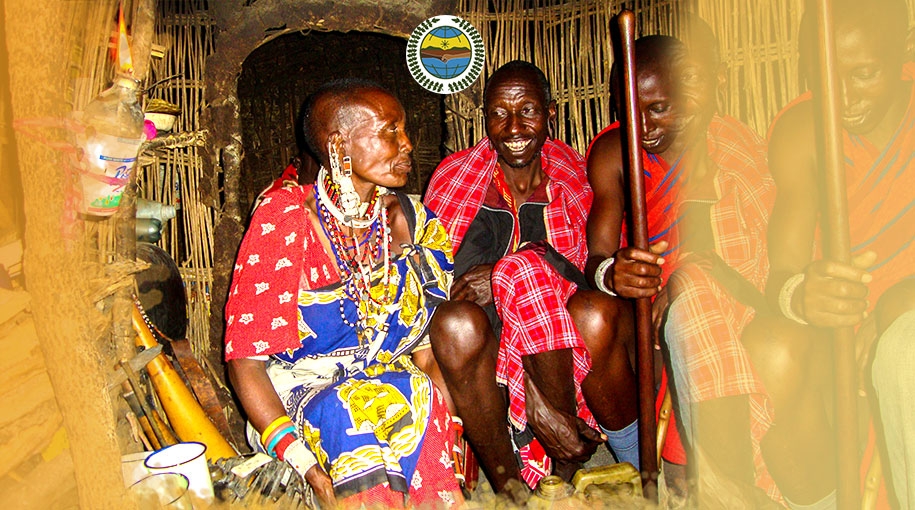“Indigenous institutions and values [are being] ignored and devalued.”
Kimaren Ole Riamit of the Indigenous Livelihood Partners (ILEPA) in Kenya, asserted the elements crucial for attaining Sustainable Development Goal (SDG) 16 in a side event for the 20th session of the United Nations Permanent Forum on Indigenous Issues (UNPFII) on 21 April 2021. The elements should include “mutually respectful sustainable partnership, support for indigenous engagement, security of livelihoods, and protection of environmental defenders,” he said.
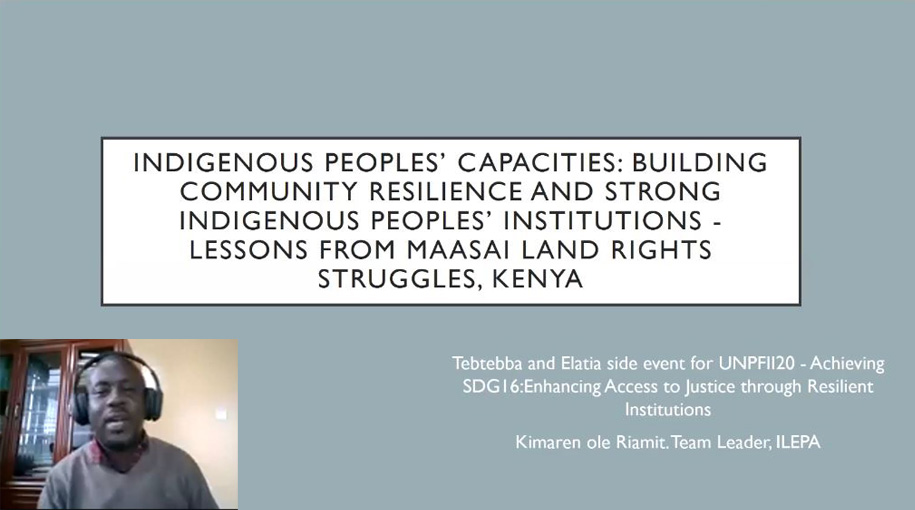
“We see the issues faced by indigenous peoples caused by their non-inclusion in the different decision-making bodies. There is a need to prioritize their recognition to successfully achieve Sustainable Development Goal 16 and all the different goals,” pointed out Victoria Tauli-Corpuz, the executive director of Tebtebba and former UN Special Rapporteur on the Rights of Indigenous Peoples (UNSRRIP) as she consolidated the reports made by the different panel speakers.
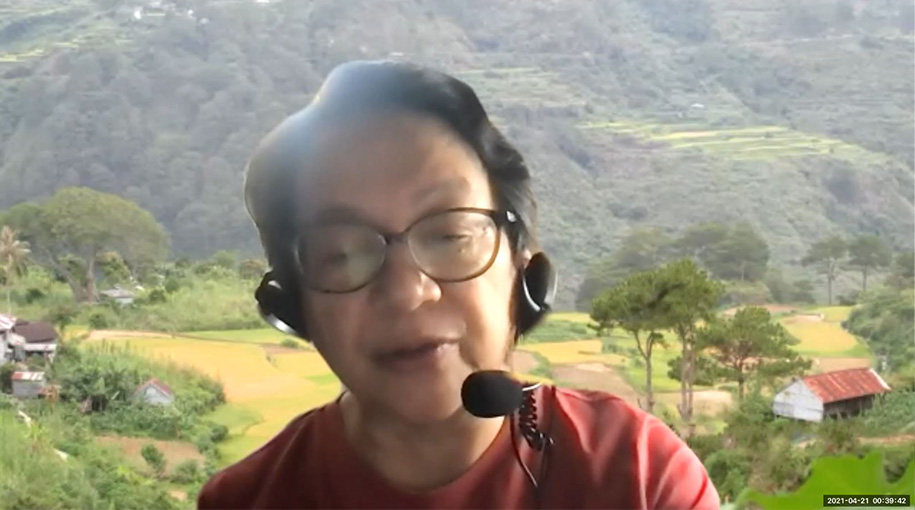
Victoria Tauli-Corpuz, the executive director of Tebtebba and former UN Special Rapporteur on the Rights of Indigenous Peoples (UNSRRIP)
“The stories that we heard today are only part of the bigger picture. The recognition of indigenous systems and the capacity of indigenous peoples to adapt to the different changes can hugely help in the achievement of the SDGs,” she added.
Likewise, Mrinal Kanti Tripura shared the contributions made by Maleya Foundation in its mission to empower the indigenous peoples of the Chittagong Hill Tracts in Bangladesh, mentioning that the Foundation started working toward the community’s self-determination, development, and conflict transformation. He, then, stressed on the need to achieve positive peace and look for ways to eradicate invisible violence as well as visible ones.
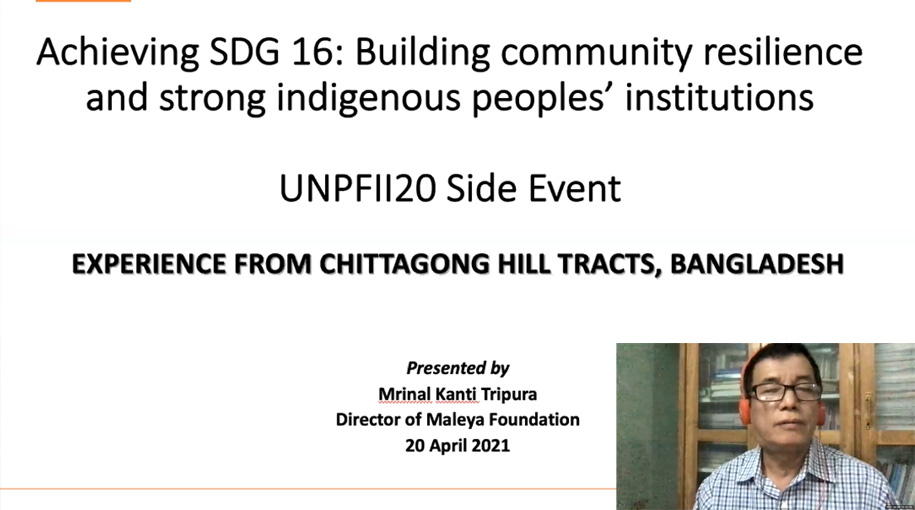
Nadia Soldevilla Pacheco, project manager of the Center for Indigenous Cultures of Peru (CHIRAPAQ), narrated the plight of Andean and Amazonian communities during the ongoing COVID-19 pandemic, mentioning that “the lack of access to safe water, sanitation, basic infrastructure, and equipment and free and adequate health services has made them even more vulnerable than before the advent of the disease.” She added that “in the absence of a specific response from the state, the indigenous peoples themselves have promoted their own processes that guarantee their survival. [They] combine traditional practices with Western medicine, with an emphasis on prevention, care and collective management of disease, and healthy eating.”

In the same manner, Bernice See of Tebtebba Foundation recounted their experiences with regard to undertaking the Indigenous Navigator initiative with indigenous peoples in the Philippines. She related the challenges they face with regard to displacement caused by political conflict, tenurial issues over their lands and territories, and insufficient access to social services, among others. She, however, detailed the manifold indigenous practices that continue to aid indigenous communities in the Philippines as they strive to “navigate towards the achievement of just, peaceful and inclusive societies.”
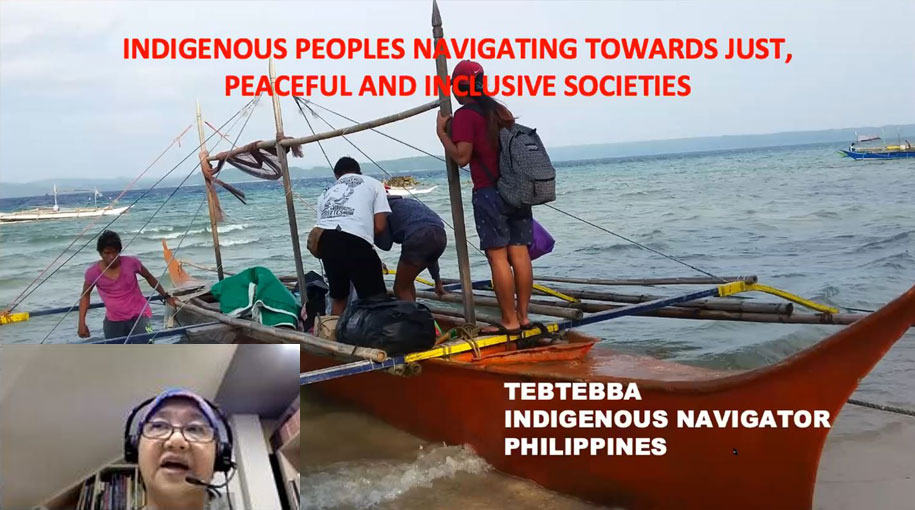
Meanwhile, “mentoring younger generations is helpful in sustaining indigenous peoples’ work on policy advocacy and in sustaining their communities” asserted Maribeth Bugtong-Biano, director of the Elatia Training Institute. She added that “trained, young indigenous peoples are now engaging in the United Nations Framework Convention on Climate Change (UNFCCC), the Convention on Biological Diversity (CBD), and the Green Climate Fund. And they help further strengthen their indigenous institutions.”

The side event entitled “Achieving SDG16: Building community resilience and strong indigenous peoples’ institutions” was attended by a total 47 participants and indigenous panel speakers from the different regions of the world. The UNPFII is a high-level advisory body to the Economic and Social Council established in 2000 with the primary mandate to deal with indigenous issues related to economic and social development, culture, the environment, education, health, and human rights. It holds an annual session at its headquarters in New York, USA but had to hold most of its events virtually in 2020 and this year due to the pandemic.


